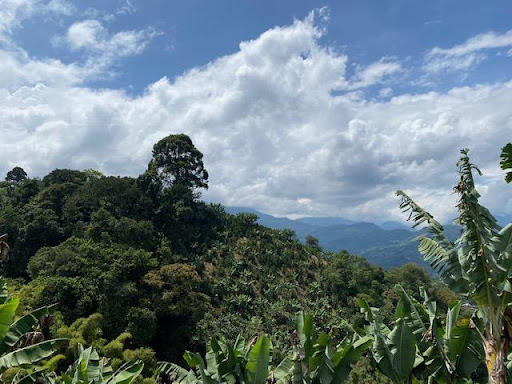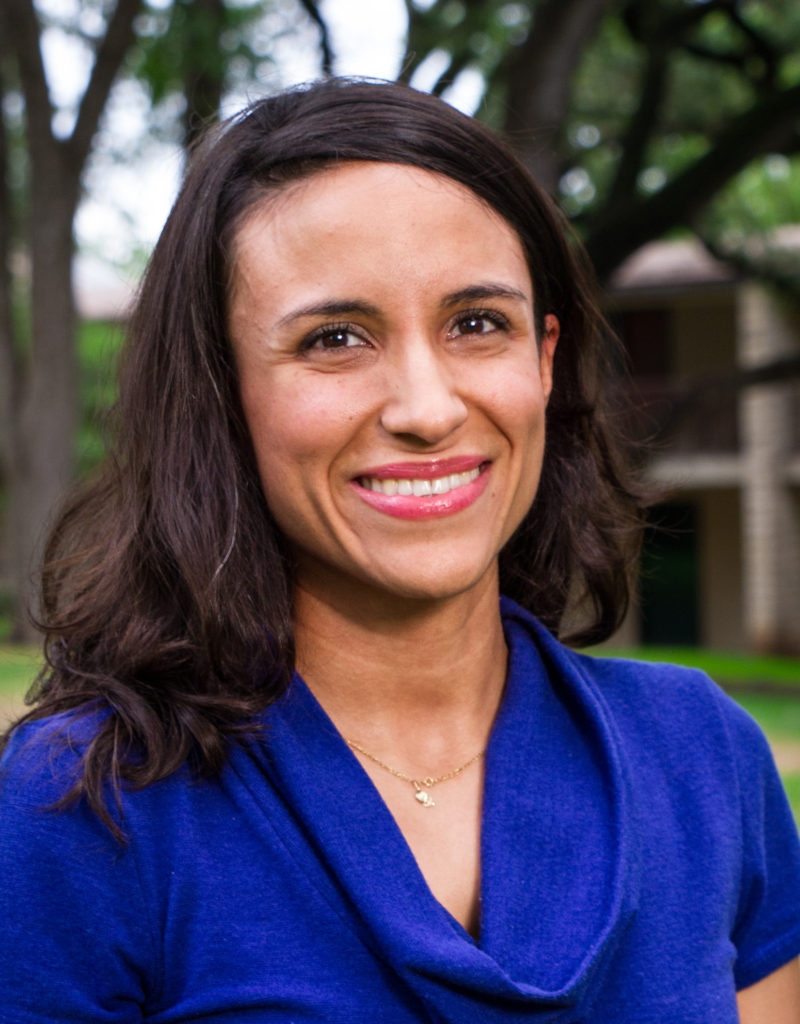By: Dr. Stephanie Ramirez
I love being the daughter of immigrants. I love dancing to salsa while I’m cleaning; I love communicating with various people in either Spanish or English; I love that my brown skin tells a story of where my ancestors came from. This pride is in part due to my parents instilling orgullo en ser Colombiana y Gringa (pride in being both Colombian and North American). I grew up learning the Colombian and U.S. national anthems and I was always reminded by my parents that I belonged in both places.
Yet I remember feeling lost in my identity, unwelcomed as a bilingual child, and struggling to make sense of my cultural identity. I loved eating arepas, frijoles con arroz, and fried plantain and yuca, but I was often embarrassed when I would take them into the cafeteria of Castle Hills Elementary School. I also realized that being bilingual in the 90’s meant that there was little education about brain development. I was often placed in remedial or special education because as a teacher once said, “there was something wrong with my learning.” As you can imagine, I spent years working hard to fit in with my peers, academically, socially, and emotionally. The silver-lining from this experience was that I learned how to adapt, to harness my resilience, and to reach out for support.
It wasn’t until much later, during my master’s and doctoral studies, that I got to explore my cultural identity through hard conversations with mentors and assignments, but more importantly, through my counseling practice. I focused my counseling practice on working with Spanish-speaking families, and with immigrants who were trying to belong in a place that was inhospitable and often traumatizing. I didn’t realize it at the time, but most of my efforts resided in supporting individuals’ fights to stay in a new place; I fought for their belonging as an evaluator, writing letters of support in court, provided mental health care in non-profit agencies, and educated myself on first- and second-generation outcomes for Latinx immigrants. Little did I know that this would be the beginning of my search for a place beyond my counseling practice…
So what does this have to do with place and belonging at SSW?
When I came to the seminary, I remember falling in love with our campus. I was excited to work with colleagues on creating a mission for a counseling program to meet the needs of the world. I desired a place where students would feel at home but also find a community and a place of belonging. This is where we, as a faculty, began to dream of having a Latinx Counseling Concentration that would recruit Latinx-identifying individuals, but more importantly, to provide a space for counseling students to belong, create relationships and community, and equip students to be the best bilingual and bicultural counselors in central Texas. I again began to feel that need…to make sure that students who looked like me felt like they had a place to call home. Throughout the summer of 2017 and fall of 2018, we completed a needs assessment so that we could better understand demographic trends and search for the best Latinx-serving agencies, including non-profits, churches, and private practices, who were successful in bridging the gap of access to mental health care for Latinx people. This needs assessment included south and central Texas and provided a wealth of information on how to develop and implement a successful concentration geared towards serving the Latinx population.
The Latinx Counseling Concentration (LCC) and Belonging
In the fall of 2018, with the help of a small Association for Theological Schools (ATS) grant, we developed and implemented The Latinx Counseling Concentration. The mission of the LCC is to prepare and train curious, culturally empathic, spiritually-integrated, accepting, and self-aware counselors. The hope is to help equip future bilingual and bicultural counselors in a changing world. This concentration evolved in various ways but now is a small but mighty concentration. The LCC forms part of the Clinical Mental Health Degree as a specialization infused in the curriculum. It is considered a differentiated curriculum that is comprised of two tracks. The first track offers a bilingual/bicultural certification of completion. Students interested in this track plan on serving clients in both languages. The second track is comprised of a bicultural certificate of completion. This track was created with the understanding that the Latinx community is diverse and often retains cultural components, without the language. The concentration contains six components (five components if your track two). The six components include a differentiated curriculum with designated courses that provide alternate assignments exclusively geared towards the Latinx community. The second component is proficiency in Spanish language. This is for those in track one only that wish to work with first- and second-generation immigrants. The third component requires a cultural plunge, or experience where students are immersed in the Latinx culture. This may be in the form of a trip or experience that allows students to learn about the sociopolitical climate for individuals immigrating to the United States. The fourth component includes a community collaboration project where students learn and participate in Latinx-serving organizations. This involves learning about community partners who have been successful in supporting Latinx people, but also connects with possible future partners in their counseling practice. The fifth component requires students to attend two continuing education (CE) opportunities that are unique to Latinx mental health. These CE opportunities are geared towards providing education in areas that are not covered by our curriculum. Lastly, the sixth component comprises students doing their practicum or internship with the Latinx community. The purpose of this differentiated curriculum is to infuse Latinx mental health throughout the Clinical Mental Health degree.
Beyond the LCC
The mission of Seminary of the Southwest’s Master’s of Clinical Mental Health Counseling program is to prepare counselors through a social justice oriented curriculum and a spiritually integrated foundation so that they can be builders of beloved community. This overall mission has supported the development and implementation of the LCC. It’s provided a place where students can find belonging; a place where culture and stigma is examined; and a place where long-lasting relationships develop. My hope is to create a network of Latinx Counselors who can see themselves reflected in the readings, culture, and profession. More importantly, I want to break the cycle of clients receiving sub-par care and equip future counselors to provide excellent mental health services in both languages. Lastly, I want our students to feel like they have a place to belong who can hold space for them and all the gifts they will be offering our future clients. In Brené Brown’s (2010) Gift of Imperfection, she writes “[…] true belonging only happens when we present our authentic, imperfect selves to the world, our sense of belonging can never be greater than our level of self-acceptance.” My desire is that our students experience true belonging in a safe and caring place.
Reflection Questions
- What experiences have led you to search for belonging?
- Where do you currently find belonging and flourishing?
- How might you support others in finding belonging?



